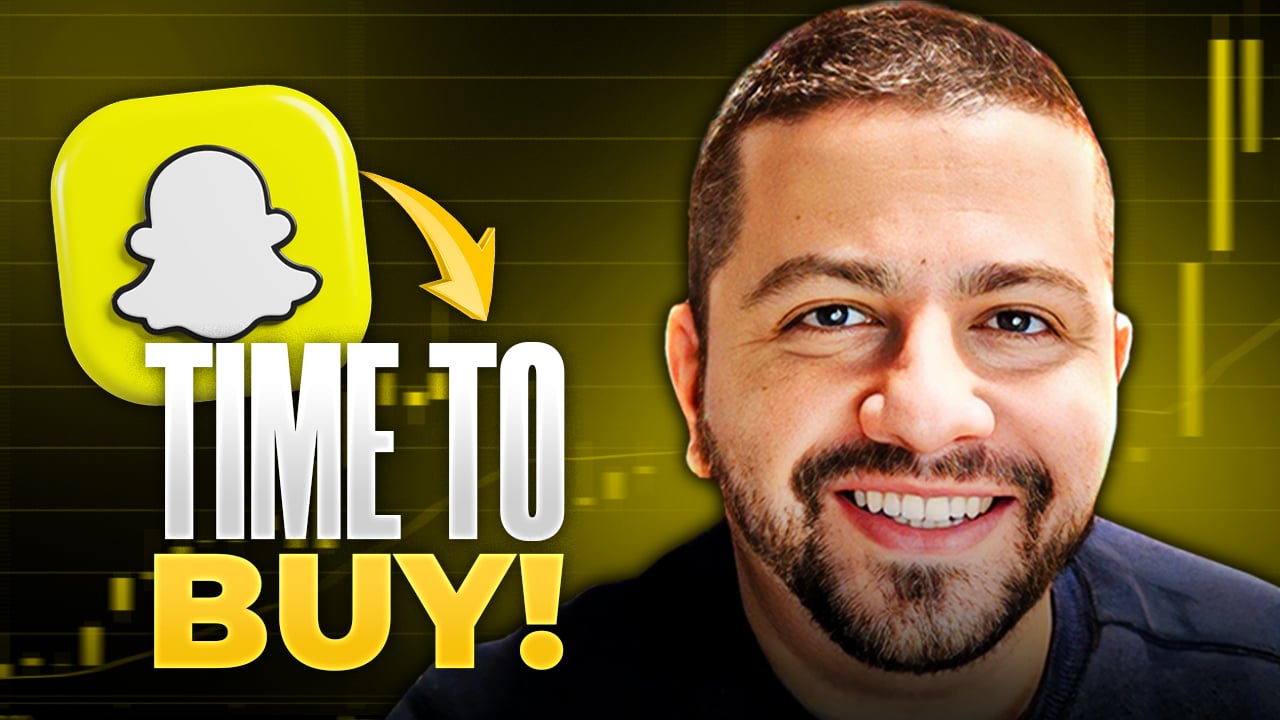Snapchat parent Snap (SNAP 2.26%) hopes to become profitable in 2019, but the company's ad business still isn't mature. Meanwhile, Snap is investing heavily in original content, which could ultimately prove to be a distraction that fails to bolster user engagement.
A full transcript follows the video.
This video was recorded on Oct. 19, 2018.
Dylan Lewis: Why don't we kick things off with Snap? A couple of big news items coming out over the past few weeks. I thought it might make sense to recap on those before the company reports next week. We had a research note earlier this month from a MoffettNathanson analyst expressing some concerns about the company's cash burn. This came as CEO Evan Spiegel is reportedly targeting full-year profitability in 2019, and a stretch goal of breaking even in Q4 of 2018. I have a little bit of skepticism around that, Evan. [laughs]
Evan Niu: Yeah, I don't think they deserve a lot of trust when it comes to their outlook and their forecasts. They've shown time and again that they're just not executing well in growing the ad business. MoffettNathanson is not the only analyst to express concerns. BTIG a month prior had a similar note. They downgraded Snap to sell and also pointed to this cash burn that's really troubling. They've burned through $0.5 billion dollars in the first half of the year. As of the end of the second quarter, they had about $1.5 billion in cash. Their cash flow is just horrendous. Free cash flow is typically in this negative $200 million range almost every quarter. They're just on this really unsustainable path.
Lewis: I think the narrative that the company is spinning is, "We have this new CFO. He's a little bit more financially minded, more of a traditional Wall Street exec." And we're starting to see them become a little bit more shipshape. We're getting some guidance from them. But I don't know that you can immediately reverse a company's path in one or two quarters. To your point earlier about cash flow, they're also posting operating losses of over $300 million every quarter for the past year. That's an operational issue. That's not necessarily a financial issue.
Niu: Right. On top of that, they announced that they're expanding their Snap Originals, which are these original content shows. Now they're getting into scripted shows and docuseries. They've done these kinds of things in the past, a little bit of original content here and there, but this sounds like a pretty big expansion. These are basically short little series that you can watch on your phone, they're vertical format. Each episode is only maybe five minutes. Then, of course, advertisers can purchase these ad spots, six seconds, you can't skip them.
I don't know about that strategy, either, monetizing original content with ads. Original content typically is very expensive. Monetizing it with advertising is a really tough way to make money. Of course, these are short shows, so maybe the production costs aren't too big. But it seems like kind of a weird thing for Snapchat to be trying to pull. Is that really going to bolster engagement? Their user numbers are already heading in in the wrong direction. I doubt that this is going to work.
Lewis: In some ways, it's surprising for a company like this to get into originals. You think of original content as being something that platform companies need in order to draw people in and have their model scale. You own and operate this content, so you enjoy the leverage that comes from it. You look at a Spotify or Netflix, it's a little bit different when you're licensing other people's work or paying royalties on other people's work for usage. So, in some ways, you have all this user-generated stuff on Snapchat. They don't need to necessarily pay for content. But then, you could also make the argument, these original series give them something that Facebook can't just copy. They can't just port that immediately over to Instagram because it is a Snapchat Original, they own it.
Niu: Right. Then again, also keep in mind that Facebook is also seeding some original content for its Watch platform, as well. Everyone is trying to do original content in their own kind of way. But certainly, Facebook has quite a bit more money than Snapchat does. [laughs]
Lewis: The reason why this works into this financial conversation we're having about profitability is, you look at the books for Snap. Infrastructure costs eat up about half of revenue. As we've talked about before, that's a variable cost, because they do not own all their IT infrastructure. That's going to scale pretty much with usage on the platform. The other big expenses for them, are payroll and R&D. If you see them laying off a bunch of people, there'll be some cost savings there. Or, if you see them stop investing in AR, VR, maybe Originals, then the cost structure might change a little bit. But clearly, they're still investing in new stuff and they're investing in new content. I see all of this as being kind of at odds against long-term profitability.
Niu: Right. I think that's the real crux of it here. They just do all this weird stuff that's arguably a distraction. Spectacles is a good example, too. They're spending all this money developing Spectacles. No one uses them, no one buys them. Now they're putting money into these Originals. Of course, everyone's doing it, so it kind of makes some sense at face value. But again, it's unclear if it's actually going to bolster engagement, strengthen the platform at all. It comes back to the money. Is it going to help them grow ad revenue? We'll see.
Lewis: [laughs] We'll see. Yeah, because that's where it's going to have to come from. For them to reach profitability, they're going to need really strong top line growth that outstrips all of the variable costs that move with increased usage. That basically means they need to increase ad impressions or increase the price that people are paying for ads. I don't really know that that's going to happen. All the revenue growth that they've been posting has been because they've increased impressions. Prices have fallen precipitously since they moved over to the automated ad-serving platform, and I don't really see that ending anytime soon.
Niu: Meanwhile, they're running out of cash.
Lewis: And meanwhile, they're running out of cash. So, something to keep in mind as you look at Snap's financials next week when the company reports.
As an interesting little anecdotal thing, one of the things that we've had a struggle with Snap is, they don't have the same targeting that a Facebook does, that a Google does, with intent and with social activity and demographics. I was on Snap this morning, Evan, and I was kicking the tires of the platform, as I often do before we talk about the company. I was checking out some stuff in the discovery channel, and I was served four variants of the same ad while consuming content. They were all from Merck, and they were all for birth control.
Niu: [laughs] Are you not in the market for birth control? Are you saying their targeting is not working?
Lewis: [laughs] I am not presently in the market for birth control, and I view that as a targeting problem on this platform, and one of the issues that ultimately traces back to ad prices. If that's what I'm getting served up, there's clearly some issue there, and that's going to bear out in whatever the advertisers see in terms of ROI. For reasons like that, I don't really see the ad prices turning around anytime soon. I don't see this company becoming profitable anytime soon, either.
Niu: I just regret getting out of my short too early. [laughs]






